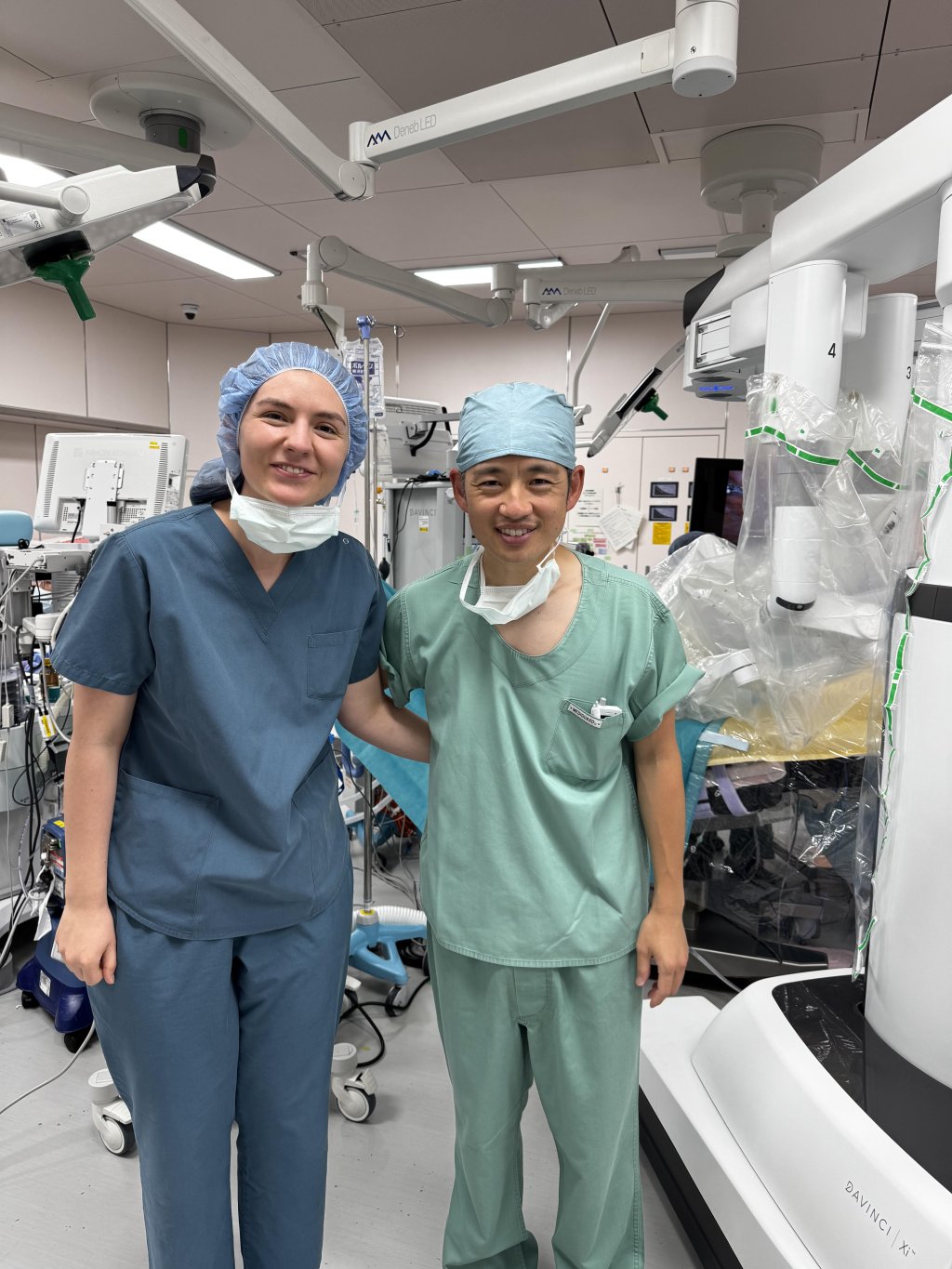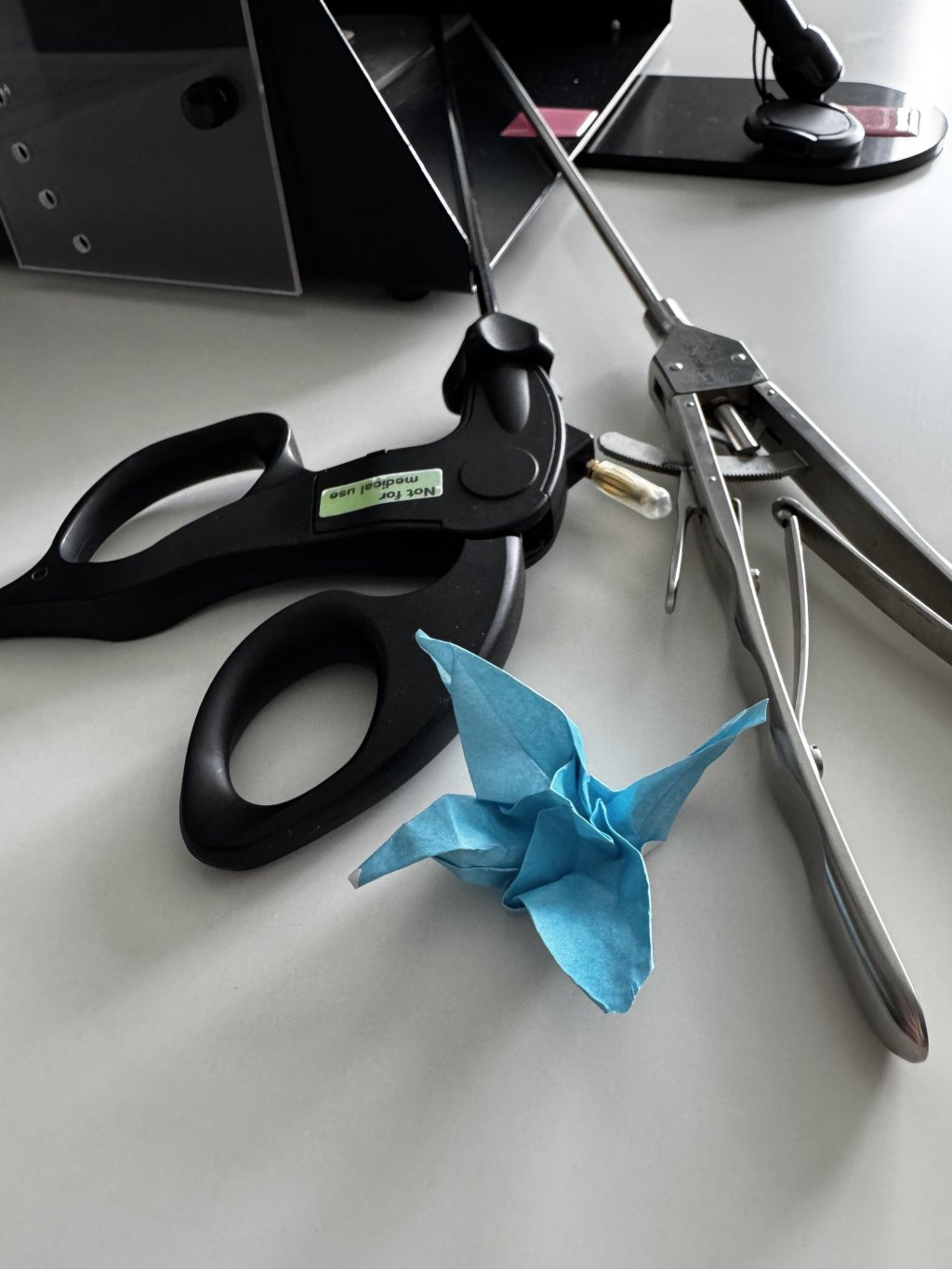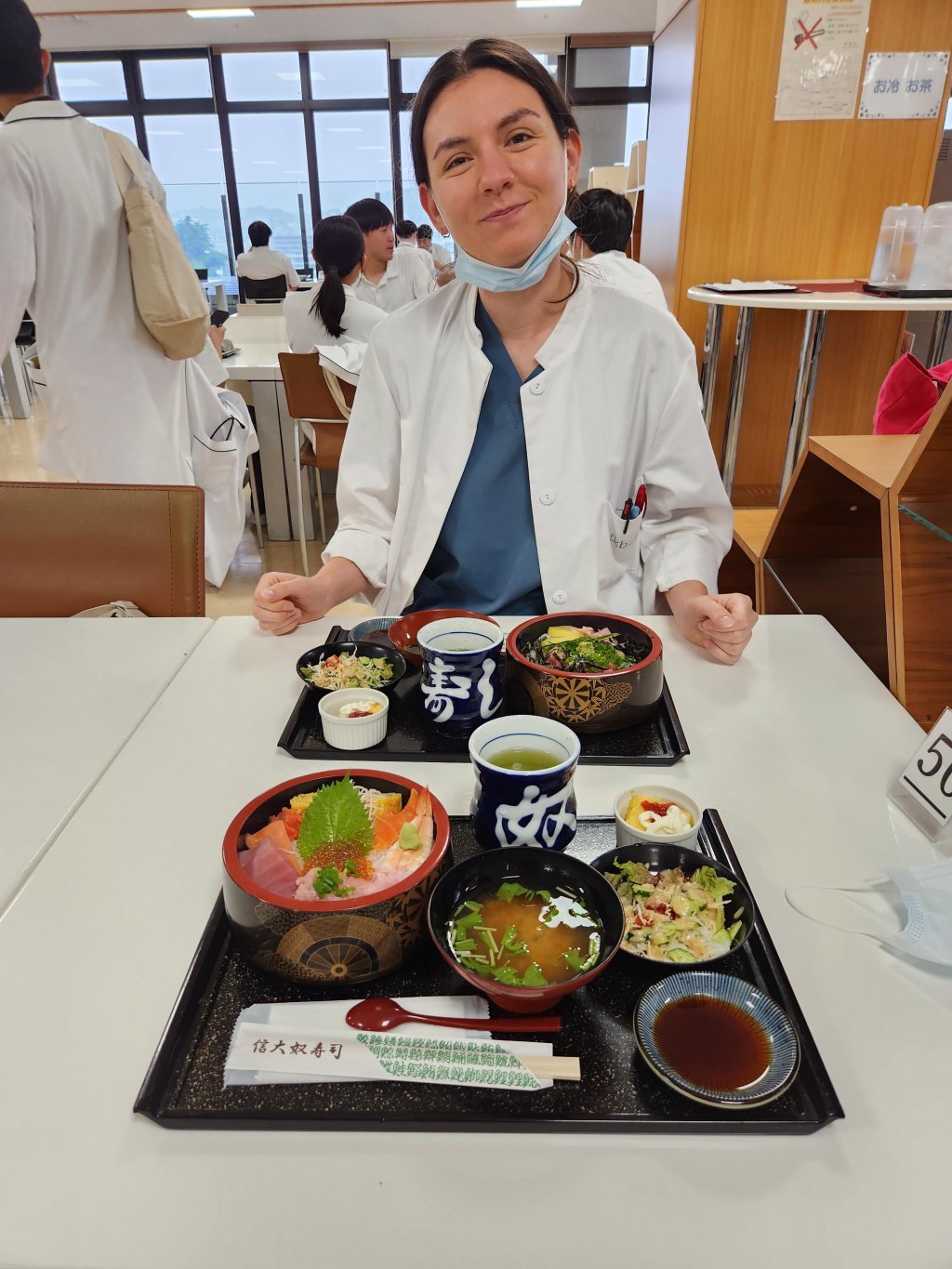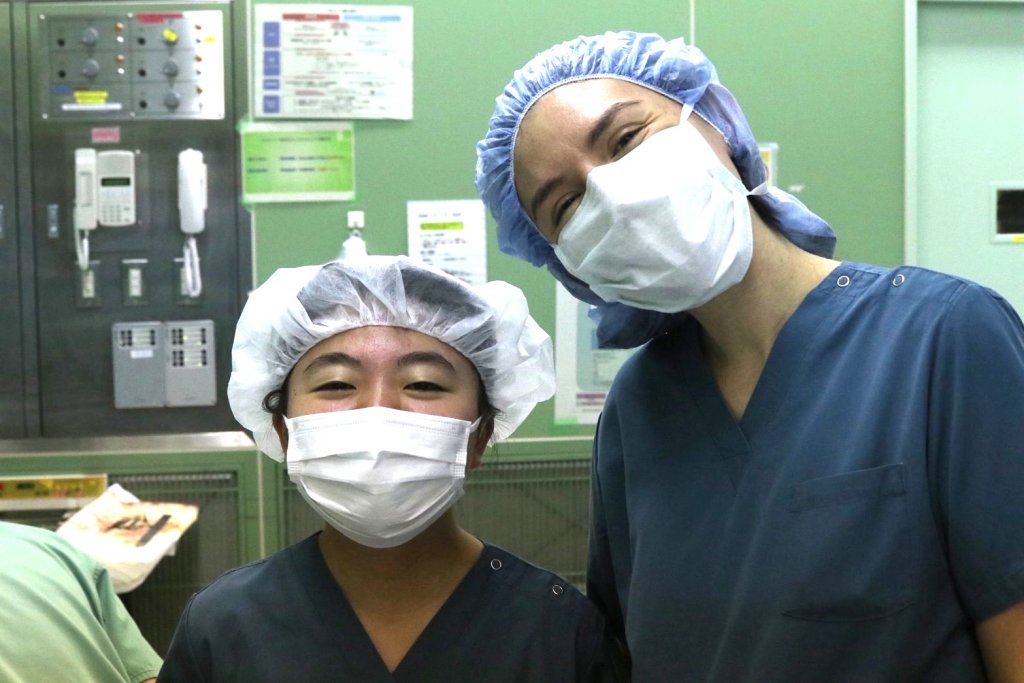2024 Student from Rheinische Friedrich-Wilhelms Universität Bonn: Clinical training at the Dept of Surgery (Gastroenterological, Hepato-Biliary-Pancreatic, Transplantation and Pediatric)
Name: Selina Hölzel
Home Institution/ Country: Rheinische Friedrich-Wilhelms Universität Bonn / Germany
Year of university: 6th
Designated department at Shinshu University: Surgery (Gastroenterological (GI), Hepato-Biliary-Pancreatic (HBP), Transplantation and Pediatric)
Training Period : from March 10 to June 15, 2025
Training: Clinical training
1. What made you come to train at Shinshu University School of Medicine, and how did you find the School through your stay?
I got connected to Shinshu University School of Medicine through a research colleague who graduated from there. After also hearing from another friend about her time working in Japan, I became really curious about the culture and the healthcare system and wanted to experience it myself. I was the first student from my university to do clinical training at Shinshu, and I was welcomed so warmly by the International Office, Professor Tanaka, and everyone in the Department of Surgery. The atmosphere during my stay was incredibly positive and supportive. One of the best parts was getting involved with MESS (Medical English Speaking Society), where I met both local and international students from different healthcare fields. The activities they organized made it easy to connect, learn, and have fun. The campus itself was also a great place to be, whether it was enjoying a tasty and affordable Japanese lunch at the student or hospital canteen, browsing the souvenir shop, or grabbing a matcha latte or snack at one of the on campus convenience stores. Seeing the cherry blossoms in full bloom on campus in April was truly special for me. I had such a great time and genuinely appreciated the whole experience!
2. Please describe your training at the host department/lab.
My training time at Shinshu University's Department of Surgery was a super valuable. From day one, I felt very welcomed, the surgeons presented cases in English to help me follow along, and I was assigned mentors in both the HPB and GI groups who translated and discussed patient cases with me. Everyone was always happy to explain things and answer my questions whenever I showed curiosity. I regularly attended briefings, journal clubs, patient safety meetings, and conferences focused on surgical planning and post-op care. I also observed and assisted in a variety of surgeries, including open, laparoscopic, and robot-assisted procedures. During ward rounds, I met patients and learned about their treatments. Since Shinshu University Hospital is a major medical center in Nagano Prefecture, I had the chance to observe complex cases like a dual living donor liver transplant. Outside of clinical work, I connected with Japanese medical students and gained insight into their studies and culture over lunch. I also practiced some Japanese anatomy, surgical, and instrument terminology with the surgeons, which was both fun and helped improve my understanding.
3. What have you gained from your training and stay in Matsumoto, Japan?
My time at Shinshu University and in Matsumoto gave me so much, both in terms of medical training and personal growth. I learned about a wide range of surgical cases in HPB and GI surgery and saw organ transplants for the first time. The surgeons let me scrub into many procedures, which really helped me improve my suturing and knot-tying skills. A fun highlight was learning how to fold origami cranes using the laparoscopy trainer, taught to me by a very surgery-enthusiastic friend! It was also one of my first times living in a place where many people didn't speak English or German fluently. That made me much more aware of what it's like to navigate communication barriers, and I know that experience will help me in the future when working in international or multicultural settings. I learned a lot about Japanese culture and often found myself reflecting on the deep kindness and politeness that's part of everyday life there. I also had the chance to explore Nagano's beautiful nature and was lucky enough to catch the cherry blossoms in full bloom. On top of everything, I made wonderful connections and friendships that made the whole experience even more meaningful.
4. How do you think you can apply those experiences to your future career?
My experience at Shinshu University taught me lessons I'll carry into my future as a doctor. I saw how strong teamwork, clear organization, and a positive, big-picture mindset can really enhance patient care, something I hope to bring into my own practice. The respectful and kind communication I observed between colleagues and with patients made a lasting impression, and it's a quality I want to reflect in my own work. At the same time, I realized that to truly help a patient, it's sometimes necessary to look beyond surface-level politeness and understand what's left unsaid. Working in an environment where language barriers existed also showed me the value of asking clear questions when things are uncertain. Overall, the experience helped me grow not just in clinical skills, but also in how I understand people and navigate cultural differences, skills I believe are essential to becoming a better doctor.
5. Advice to those interested in studying at Shinshu University.
Medicine and being a clinician is about more than just knowledge or the specialty we choose. It's also about working in environments where people from diverse cultures and backgrounds come together. I believe stepping outside of our comfort zones and gaining experience in different parts of the world helps us grow into more empathetic, open-minded, and globally connected individuals and ultimately, better physicians. If this kind of experience interests you, go for it. You'll be surprised by how much you'll grow, both personally and professionally. Just a tip, learning a bit of Japanese beforehand isn't a must, but it'll definitely make your experience a lot smoother and more rewarding.






